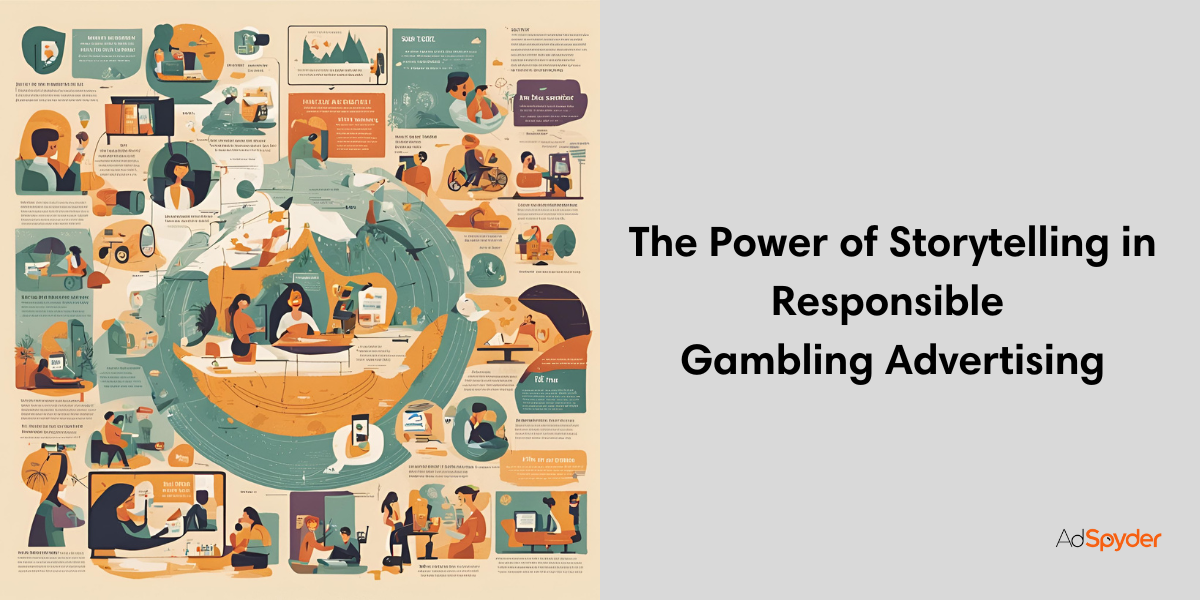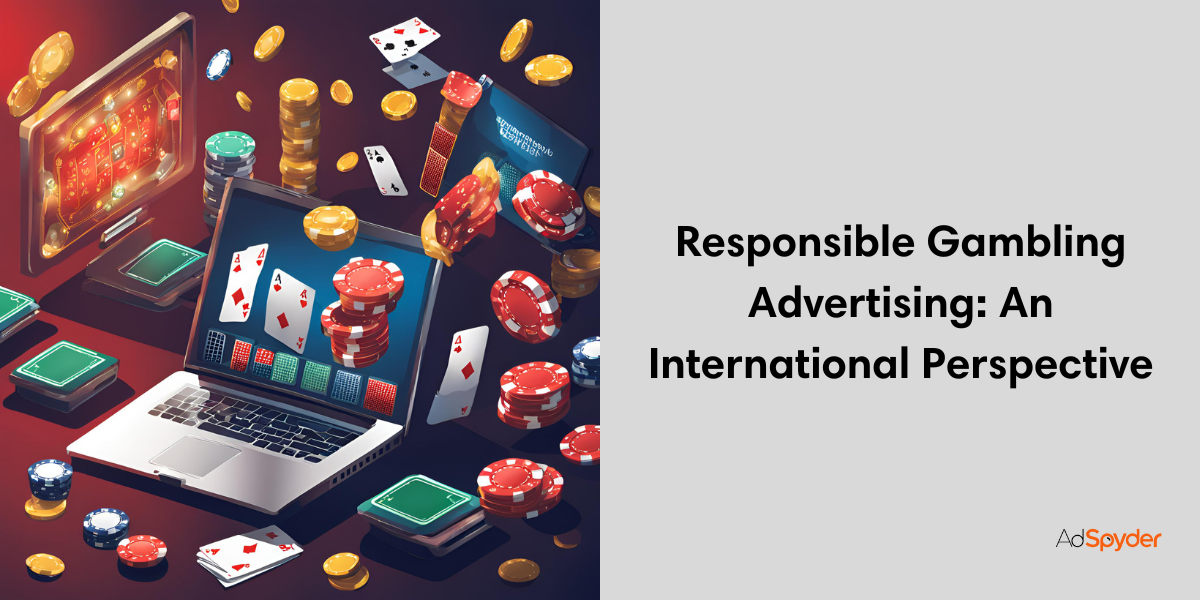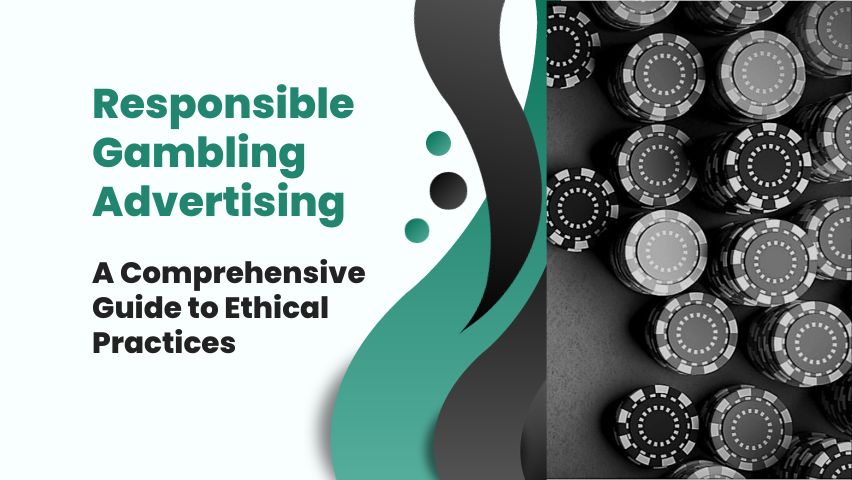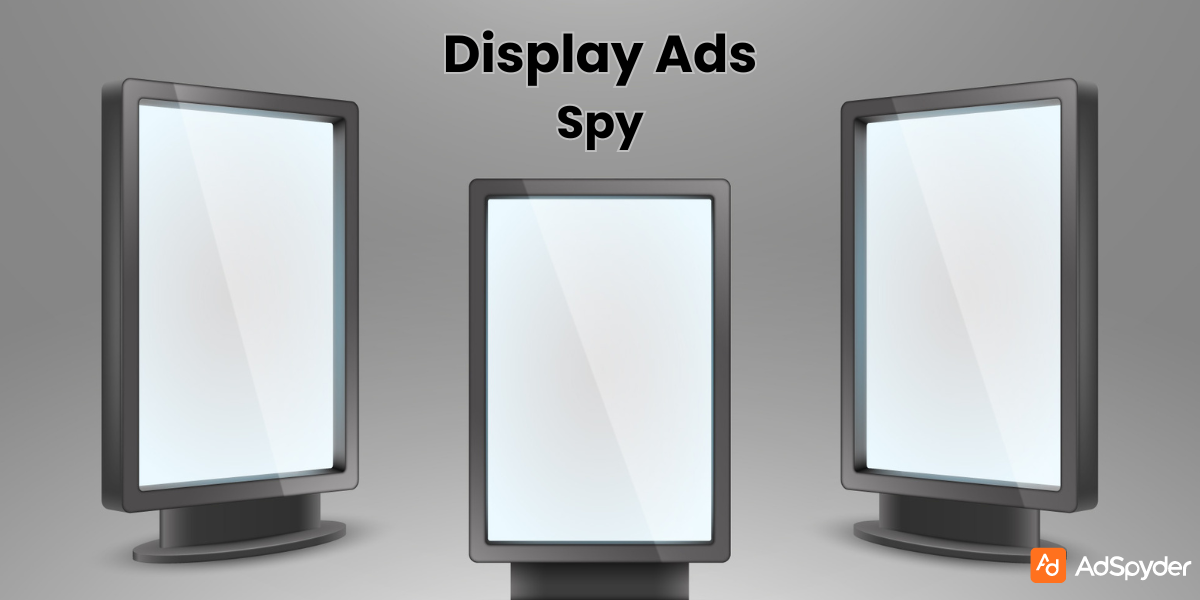Responsible gambling advertising, including responsible gaming and gamble responsibly messages, isn’t just a legal requirement; it’s a moral imperative within the gaming industry. As online gambling gains momentum, the need to advocate for responsible gambling practices becomes increasingly vital. This blog aims to delve into the significance of responsible gambling advertising, the role of codes of conduct, and best practices to uphold industry integrity while safeguarding consumers.
Responsible Gambling Advertising Codes of Conduct
Responsible gambling codes of conduct are essential guidelines that set the framework for responsible gambling ads in the gambling industry, ensuring they promote safe gambling. These codes are often developed by industry organizations in collaboration with regulatory bodies to ensure transparency, fairness, and social responsibility in gambling advertising. The UK, for instance, has the Gambling Advertising and Sponsorship Code, established by the Industry Group for Responsible Gambling (IGRG), to delineate the rules and guidelines for responsible gambling advertising and sponsorship.
Adhering to Regulatory Advertising Guidelines
Different countries have specific advertising guidelines laid down by regulatory bodies to shield consumers from harmful or misleading ads. Advertisers in the gambling industry must adhere to these directives to maintain ethical standards and avoid potential repercussions. In Australia, the Australian Association of National Advertisers (AANA) has developed the Wagering Advertising and Marketing Communication Code, furnishing industry-specific guidelines for gambling advertisements.
Striking a Balance between Entertainment and Risk Disclosure
Gambling ads often portray gambling as an enjoyable form of entertainment, but it’s equally crucial to disclose the inherent risks of gambling activities. Advertisers must strike a harmonious balance between highlighting the entertainment value of gambling and providing transparent information about potential risks. Research indicates that 63% of young adults believe that gambling ads should incorporate information about the risks associated with gambling.
Clear and Effective Communication of Responsible Gambling Messages
Responsible gambling messages, including gamble responsibly disclaimers, must be conveyed clearly and effectively in advertisements. This entails using straightforward language, eschewing ambiguous statements, and employing visuals that reinforce the responsible gambling message. An impressive 78% of consumers opine that gambling ads should encompass responsible gambling messages.
Promoting Healthy Gambling Behavior
Responsible gambling advertising should propagate healthy gambling behavior and endorse responsible betting practices. Advertisers can emphasize concepts such as setting limits, practicing self-control, and viewing gambling as a form of entertainment rather than a quick financial fix. A survey revealed that 71% of gamblers deem setting a budget as an essential facet of responsible gambling.
Discouraging Excessive Gambling and Chasing Losses
Responsible gambling advertising should actively discourage excessive gambling or chasing losses. Advertisers should steer clear of language or visuals that encourage risky behaviors or portray gambling as a panacea for financial woes. A significant 68% of consumers opine that gambling ads should not encourage gambling beyond one’s financial means.
Collaboration with Responsible Gambling Organizations
Advertisers within the gaming industry can collaborate with non-governmental organizations (NGOs) and responsible gambling entities to fortify responsible gambling messages within their ad campaigns. By joining forces with these organizations, advertisers can amplify responsible gambling messages and contribute to the overall well-being of consumers. An impressive 89% of consumers believe that gambling companies should collaborate with responsible gambling organizations.
The Power of Storytelling in Responsible Gambling Advertising
 Storytelling has the potential to be a potent tool in responsible gambling advertising. By crafting compelling narratives, advertisers can convey the message of responsible gambling in a way that resonates deeply with their audience. For instance, sharing stories of individuals who have faced and overcome gambling addiction can humanize the issue and encourage empathy. Research indicates that 55% of consumers are more likely to remember a story than pure statistics or facts.
Storytelling has the potential to be a potent tool in responsible gambling advertising. By crafting compelling narratives, advertisers can convey the message of responsible gambling in a way that resonates deeply with their audience. For instance, sharing stories of individuals who have faced and overcome gambling addiction can humanize the issue and encourage empathy. Research indicates that 55% of consumers are more likely to remember a story than pure statistics or facts.
Responsible Advertising in Online Betting: Balancing Profit and Ethics
While advertising is essential for the gambling industry’s profitability, it should never come at the expense of ethics. Responsible gambling advertising involves striking a delicate balance between promoting products and services and safeguarding users. Achieving this equilibrium necessitates a commitment to transparency and ethical considerations. 82% of consumers believe that businesses should have a clear set of values.
Educational Campaigns as a Responsible Gambling Tool
Educational campaigns can serve as a pivotal component of responsible advertising in the betting space. Advertisers can create informative content that educates users about the risks associated with gambling and offers practical advice for responsible gambling. These campaigns can take various forms, including articles, videos, infographics, and interactive tools. A study found that 75% of consumers value educational content that helps them make informed decisions.
Responsible Gambling Advertising: An International Perspective
 Responsible gambling advertising practices may vary significantly from one country to another due to different cultural norms and regulatory frameworks. Advertisers operating on a global scale should be cognizant of these differences and adapt their campaigns accordingly. In Sweden, the Swedish Gambling Authority regulates gambling advertising, emphasizing the need for responsible gambling messages.
Responsible gambling advertising practices may vary significantly from one country to another due to different cultural norms and regulatory frameworks. Advertisers operating on a global scale should be cognizant of these differences and adapt their campaigns accordingly. In Sweden, the Swedish Gambling Authority regulates gambling advertising, emphasizing the need for responsible gambling messages.
Consumer Empowerment through Responsible Advertising
Responsible gambling advertising should empower consumers to make informed decisions about their gambling activities. Advertisers can achieve this by providing clear information about odds, risks, and resources for seeking help in case of gambling-related issues. 84% of consumers believe that brands should help consumers make informed choices.
Conclusion
Responsible gambling advertising, encompassing responsible gaming, gamble responsibly, and responsible gambling messages, stands as a linchpin for the sustainability of the gaming industry while safeguarding consumers from potential harm. Abiding by gambling codes of conduct, maintaining equilibrium between entertainment and risk disclosure, fostering healthy gambling behavior, partnering with responsible gambling organizations, and embracing storytelling are all pivotal elements of responsible gambling advertising. By embracing these best practices, advertisers in the gambling sector can play a pivotal role in creating a safer and more enjoyable gambling environment for all users, simultaneously upholding industry integrity and profitability.



